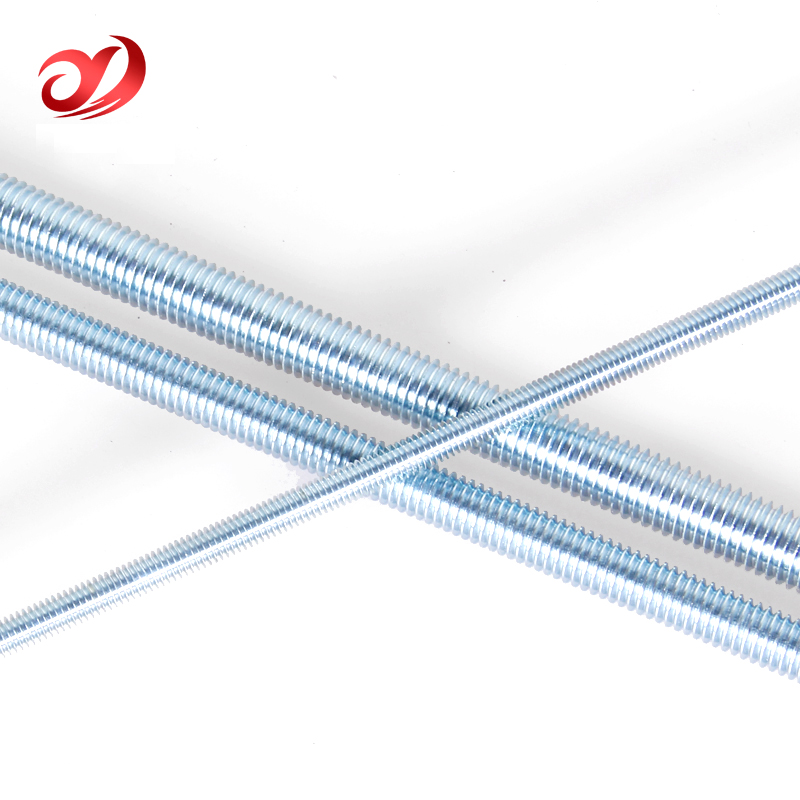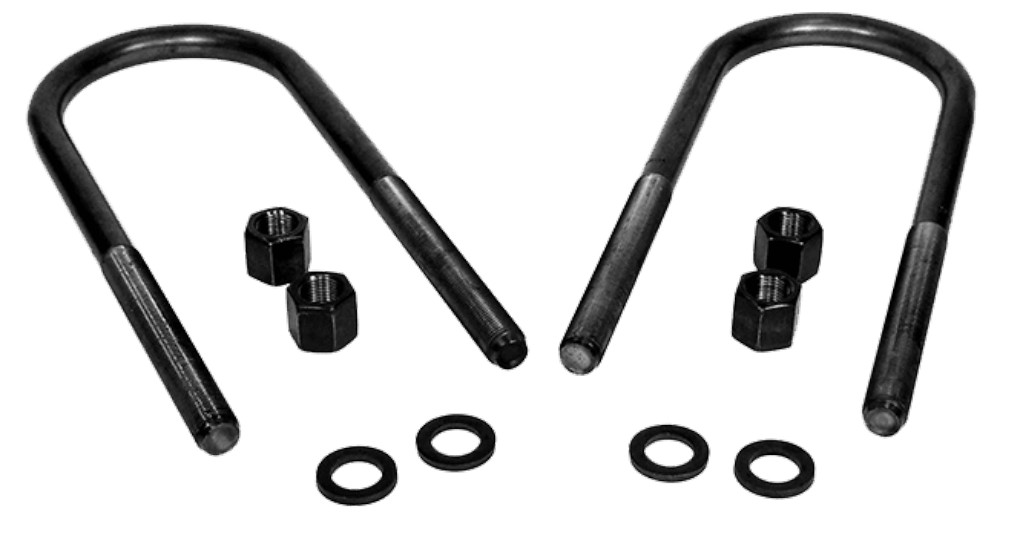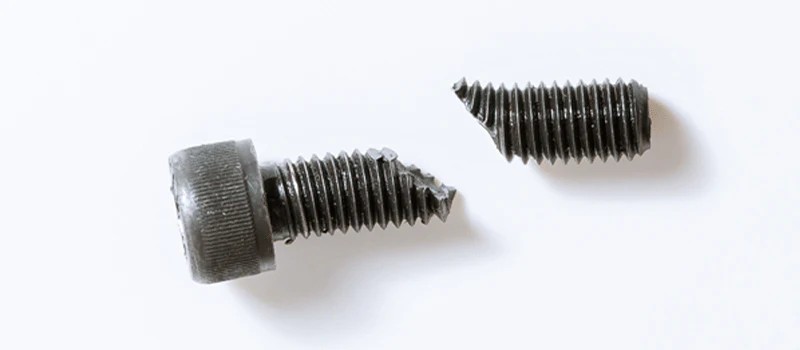What Does Teflon-Coated Mean?
Teflon is the brand name for polytetrafluoroethylene (PTFE), a synthetic fluoropolymer known for its nonstick and chemical-resistant properties. PTFE coatings are applied to fasteners through a specialized process to create a thin, uniform layer that reduces friction and prevents galling or seizing.
One of the most well-known PTFE-based coatings in the fastener industry is Xylan, which is commonly used for its superior performance in extreme conditions.
Key Benefits of PTFE Coating
Low coefficient of friction – reduces torque requirements
Exceptional corrosion resistance – withstands exposure to chemicals and saltwater
High operating pressure – up to 100,000 psi
Easy installation and removal – prevents seizing and galling
Unlike traditional zinc or hot-dip galvanized coatings, PTFE does not produce oxides, which means that fasteners coated with it can be easily removed even after long-term use.
Is It Necessary to Lubricate PTFE-Coated Bolts?
One of the biggest advantages of PTFE-coated bolts is that they do not require additional lubrication. The coating itself acts as a lubricant, reducing friction and ensuring consistent torque application.
This eliminates the need for:
Molybdenum disulfide (MoS₂) lubricants
Nickel-based lubricants
However, for critical applications requiring precise torque control, some engineers may still opt for a light application of lubricant to further enhance performance.

Difference Between PTFE and Teflon Coating
PTFE is the scientific name for polytetrafluoroethylene, whereas Teflon is a brand name owned by Chemours (formerly DuPont). Essentially:
All Teflon coatings are PTFE
Not all PTFE coatings are Teflon
Common PTFE Coatings in the Fastener Industry
1. Xylan Coatings
A PTFE-based fluoropolymer coating developed by Whitford Worldwide (now part of PPG).
Most popular variant: Xylan 1424
2. FluoroKote#1®
A proprietary PTFE coating known for:
Superior corrosion resistance
Low friction
3. PFA and FEP Coatings
Other fluoropolymer coatings that offer different levels of chemical and temperature resistance.
Both Xylan and FluoroKote#1 provide similar benefits in terms of:
Corrosion protection
Anti-galling properties
Ease of installation
Common Applications of PTFE-Coated Fasteners
Due to their unique properties, PTFE-coated fasteners are widely used in:
Offshore Oil & Gas
Provides corrosion resistance in saltwater environments.
Petrochemical Industry
Protects against chemical exposure and extreme temperatures.
Power Plants
Prevents seizing in high-pressure and high-temperature conditions.
Food Processing & Pharmaceuticals
Ensures contamination-free performance.
Automotive & Aerospace
Reduces friction and enhances longevity.
Many industries rely on:
For superior performance and complete assembly protection.
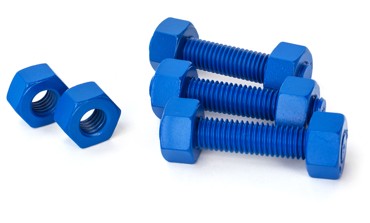
Advantages and Disadvantages of PTFE-Coated Bolts
Advantages:
Corrosion Resistance – Excellent resistance to chemicals, moisture, and salt spray.
Non-Stick Properties – Prevents galling, seizing, and thread damage.
Consistent Torque Performance – Provides a stable k-factor, reducing installation errors.
No Need for Lubrication – Eliminates the need for additional coatings or greases.
High-Temperature Resistance – Withstands extreme temperatures without degradation.
Disadvantages:
Quality Variations – Not all manufacturers follow strict quality control for PTFE coatings.
Torque Variability – If the k-factor is inconsistent, torque values can be unreliable.
Higher Initial Cost – More expensive than traditional galvanized fasteners.
When selecting PTFE-coated fasteners, it is important to choose a reputable manufacturer to ensure consistent quality. Inferior coatings can result in:
Unpredictable torque values
Premature failure
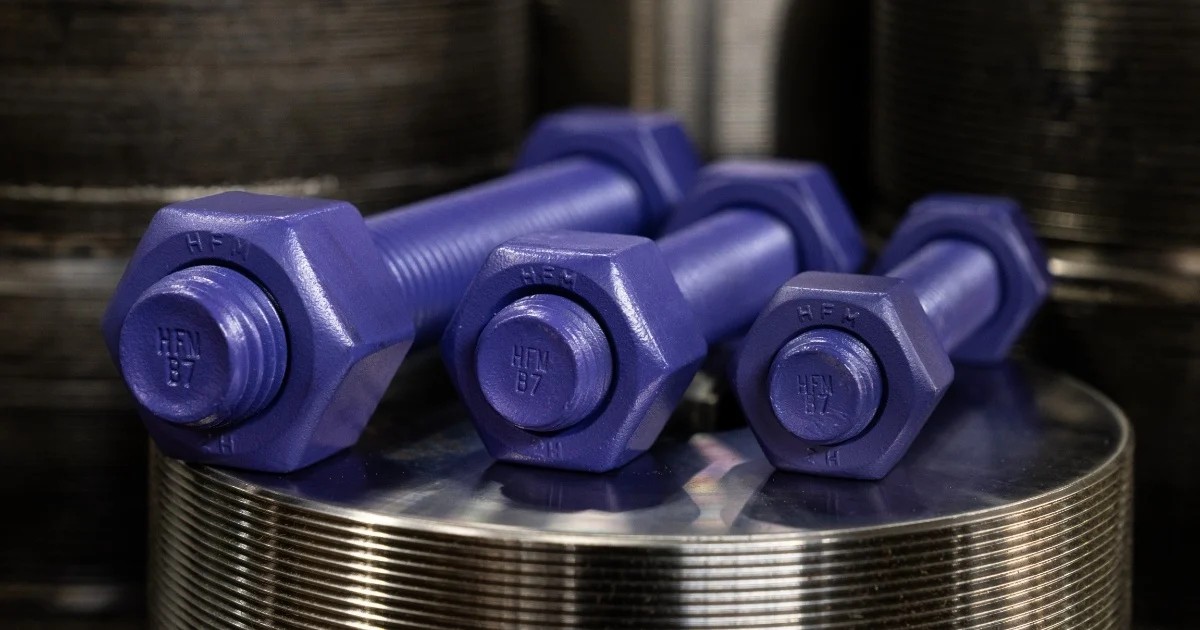
Conclusion
PTFE-coated fasteners, such as Xylan-coated bolts and FluoroKote#1 studs, are an excellent choice for applications requiring:
High corrosion resistance
Easy installation
Reduced maintenance costs
Their self-lubricating properties eliminate the need for additional grease, while their low friction and high-pressure tolerance make them ideal for demanding environments.
Choosing the Right Supplier
If you're looking for reliable PTFE-coated bolts, nuts, or washers, make sure to:
Source from trusted suppliers
Ensure they follow ISO 9001 standards
Request tested k-factor data for torque consistency






